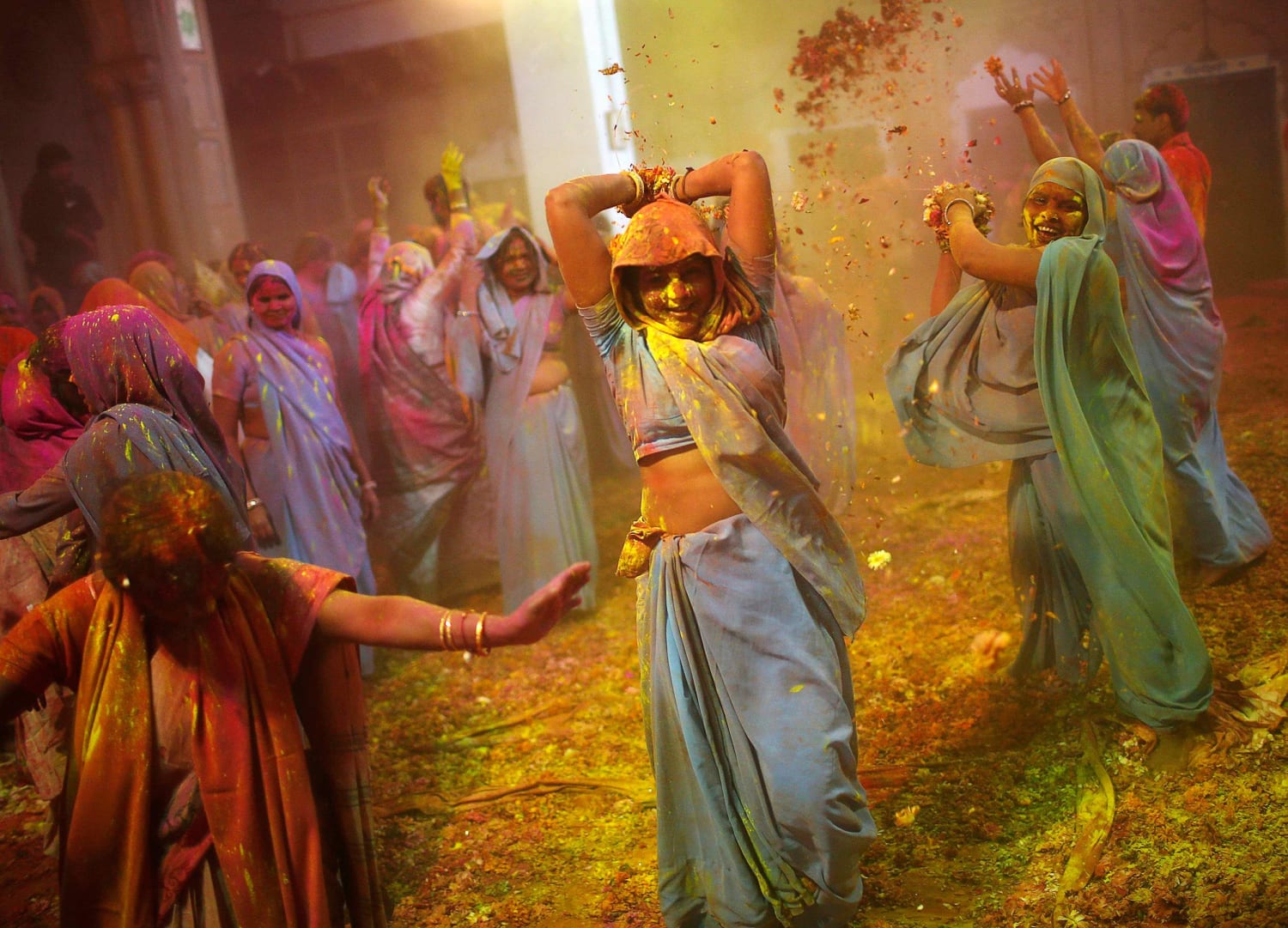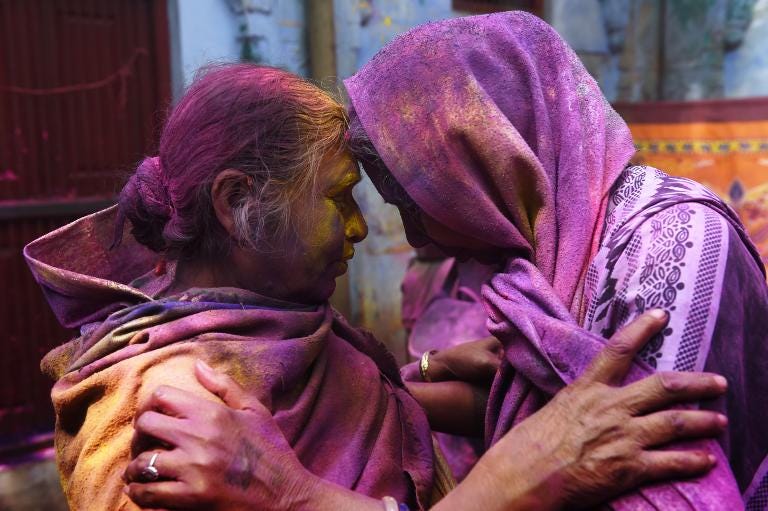- Moderator
- #1
Life for widows in India has often been pretty grim. They are exiled by their families, invisable in society and left eek out an existance in poverty and on charity.
Entire story and some fantastic photographs of this colorful festival at this link:
For India s Widows A Riot Of Color An Act Of Liberation NPR
Official dress for widows is white, it's nice to see them rising up and claiming colors in this festival.Entire story and some fantastic photographs of this colorful festival at this link:
For India s Widows A Riot Of Color An Act Of Liberation NPR
Hindu tradition frowns on widows celebrating at such festivals. In some parts of the culture, the women are seen as the cause of their husband's death and relatives believe they should be cast out. The segregation of widows can be so extreme that in some places they are prevented from attending family gatherings, including weddings. Many poor widows are abandoned by their families and left to fend for themselves. According to census data, India is believed to have tens of millions of widows. Thousands live out their lives in the ashrams in the ancient temple-filled city of Vrindavan, popularly known as the City of Widows.
But when the widows of Vrindavan ignore the social taboo and join in the fun, Holi takes on a whole new dimension. Cavorting in the chaos of color, women young and old stand in showers of rose petals and marigolds and playfully smear each other with fuchsia, green and gold powder. With this act of joy, the women fight back against restrictions that have ostracized them.




